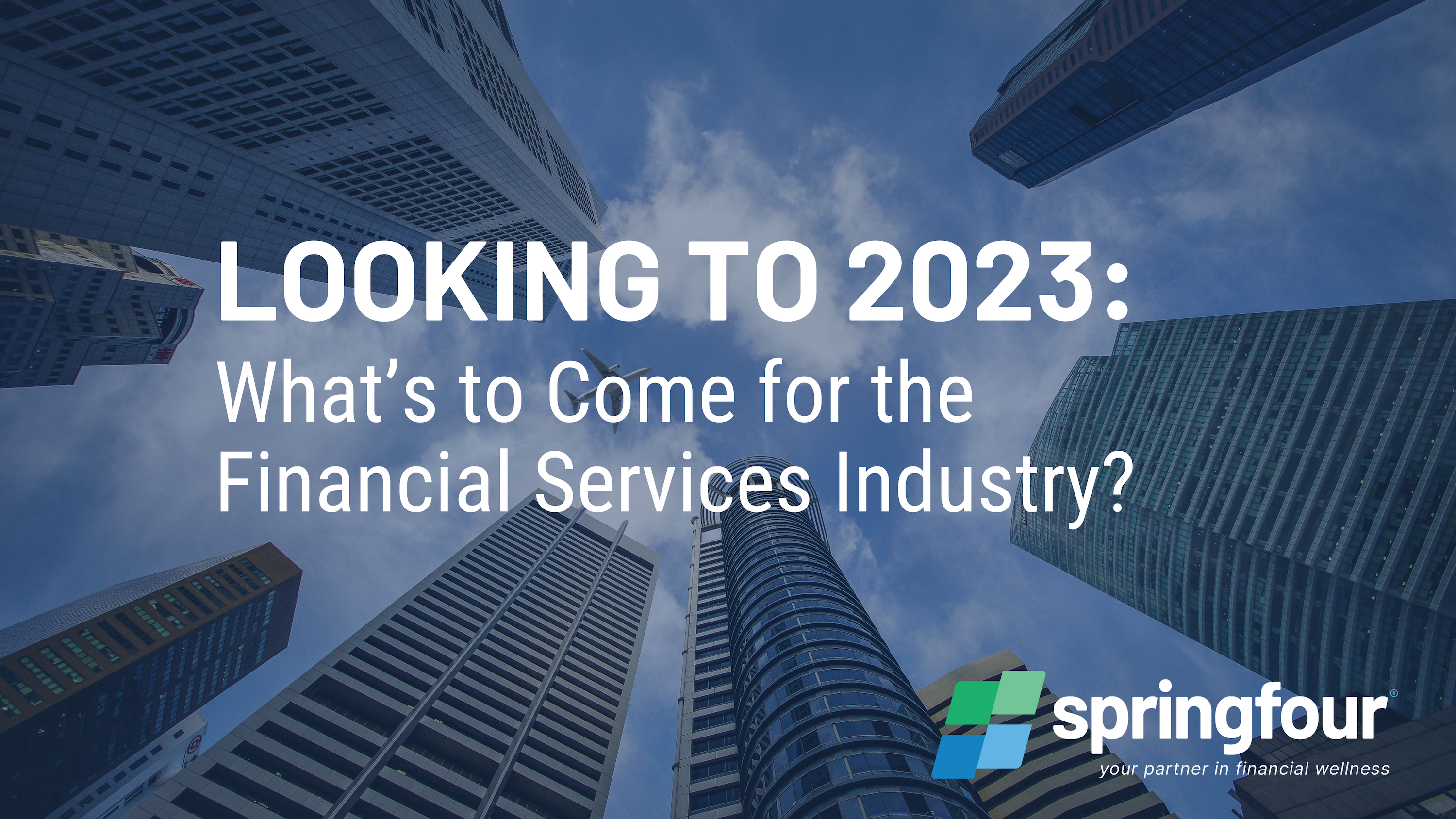
Looking to 2023: What’s to Come for the Financial Services Industry?
From evolving collections strategies to the consumer impact of Buy Now Pay Later, see what the SpringFour team anticipates for fintech and the financial services industry in 2023.
Removing stigmas: We will see more attention and emphasis placed on helping consumers tackle financial hardship as people continue to be affected by high costs, bringing more attention to strategies that offer assistance. This will help remove the stigma often associated with default and collection strategies.
Empowering contact centers: The steady drive to self-service in all areas of consumer servicing gives financial institutions the opportunity to strengthen their brands by empowering their contact center agents, including those in collections, to demonstrate more empathy. Agents will gain more tools both to understand the customer’s situation and offer actionable assistance. Embedding empathy into collections will transform how consumers view and interact with collections.
Expanded resources: With continued inflation and unemployment, local and state organizations will be leveraging pandemic-era federal dollars to help more individuals in distress.
More Support for Buy Now Pay Later Users: We’ll see an increase in the number of financial health resources targeting consumers who have used Buy Now Pay Later options and have found themselves in need of more financial support.
Industry-wide adoption: Other industries beyond financial will embrace finhealth strategies as consumer debt climbs and delinquency across all spectrums rise. Utility companies will embrace innovative finhealth solutions as they face unprecedented levels of delinquencies among their customers and see more employers adopt strategies for helping their employees weather tough times or hardship.
ESG: As inflation wanes and consumers become more invested in how businesses impact society and the environment, companies will increase their focus on ESG strategies, and we will see more financial health-related activities counted towards their ESG goals.
AI and financial health: Financial institutions will deliver more personalized financial health resources to consumers, both via self-service platforms and contact center agents, as well as AI-powered chatbots.
Impact stories: During this time of global distress, more companies will prioritize sharing ESG impact stories, showcasing how they’re helping consumers while improving their brand. Brands who do this will differentiate themselves and lead the way for broader adoption of impact strategies.
Inflation is high, and the threat of a potential recession ahead remains. Consumers are struggling. Now is the time for banks, fintechs, and other financial institutions to work together to create impactful solutions for consumers in need. Empathy, innovation, and collaboration are key to creating meaningful, long-term impacts on people across the country.
 Morgan Pierce
Morgan Pierce
Client Success and Impact Associate, SpringFour
Awards and Recognition






















